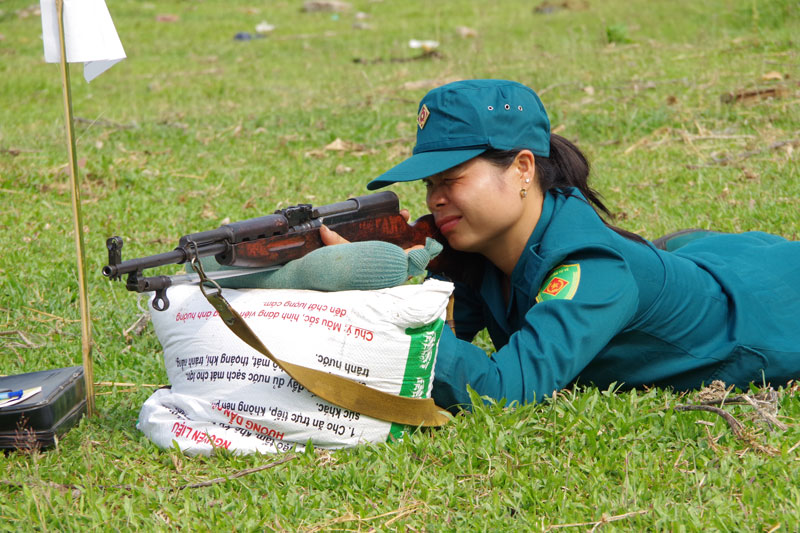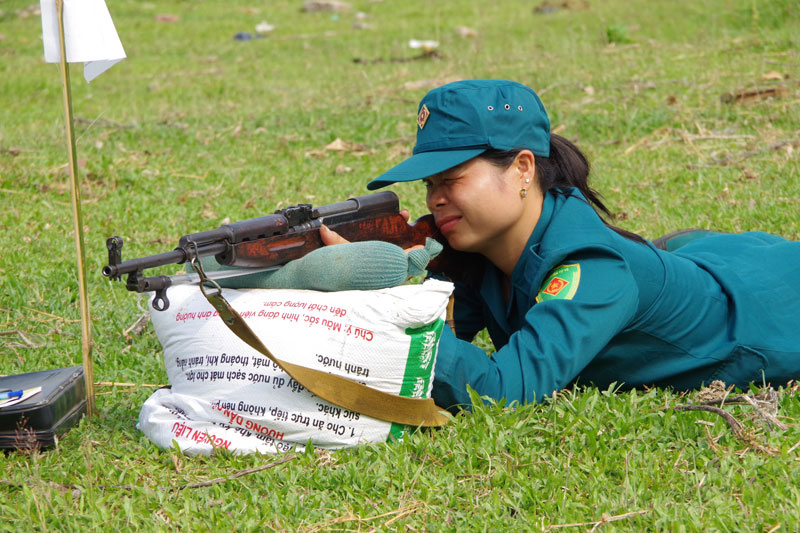



Ms. Dinh Thi Nhu, a female militia, Mong Hoa commune
(Ky Son) in the training field.
Noticing that the area has a large area of
lemongrass plantation, Ms. Nhu discussed with her family to open a small shop
to collect goods, mainly lemongrass. The business went on. At the beginning of
2014, Ms. Nhu was selected by the Commune Military Management Board to
participate in the mobile militia of the commune. Since then, Ms. Nhu has
always actively learnt, striven to complete the tasks assigned.
In 2015, the District Military Management
Board organized a movement to emulate staff and soldiers of the Armed Force to
do good and lawful business together with the movement of hunger elimination
and poverty alleviation in the localities, which were widely mobilized and
motivated. This urged Ms. Nhu to find the direction of economic development for
her family. She discussed with her family about how to overcome difficulties,
promote production under the V.A.C model.
. The aboriginal pigs are raised freely,
taking advantage of banana trees for food, so pork products are popular with
the market and can be sold at high prices. Along with the maintenance of fish
ponds, Ms. Nhu invested in the expansion of production, growing white sugarcane
and lemongrass areas. After more than 2 years with the model, up to now, Ms.
Nhu owns a model of V.A.C with a total area of 4 hectares, of which the
breeding area is 80 m2, the pond area is 2,160 m2, the planting area is
17,000 m2. In addition, Ms. Nhu is still responsible for collecting lemongrass
for local people in the area, helping local people have higher income without
transporting lemongrass far away. Annually, besides her income from sugarcane
and lemongrass harvest of about 80 million VND, the total income from the model
reaches hundreds of millions VND. At present, in order to create clean and safe
products for consumers, increasing the income and creating jobs for local
workers, Ms. Nhu has carried out the project of economic development to expand
the scale of the existing model.